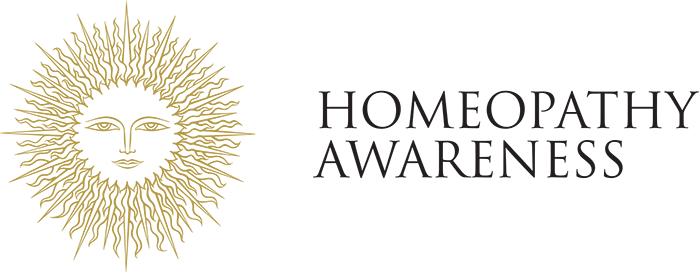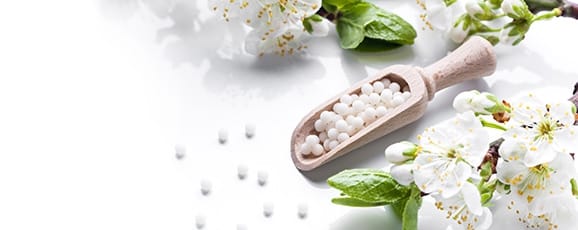Homeopathy in practice
What should I expect if I book a homeopathic consultation?
Homeopathy works holistically and treats each person as a unique individual. As well as getting a thorough understanding of a patient’s health concerns, homeopaths also want to find out about medical history, sleep patterns, temperament, likes and dislikes and all the things that make us individuals. The first consultation usually lasts around one and half hours, after which the homeopath will prescribe a remedy that is the best match for the patient’s whole picture. Homeopathic medicines are usually taken as tablets or pillules, but may be given in liquid or powder form.
Follow up consultations usually take place around four to six weeks later and are a little shorter, lasting 30 minutes to an hour. Follow-ups are an opportunity to talk in depth about any changes that have occurred. The homeopath will then decide on the next stage of the treatment plan and may need to fine tune the prescription.
As the patient progresses, follow up consultations may be spread further apart to six weeks, two months, and so on. Many people like to maintain a regular contact with their homeopath, booking an appointment every six months or so, using homeopathy as a ‘preventive medicine’, so that optimum health can be maintained and any symptoms are addressed quickly.
To find a qualified, registered and insured practitioner, visit: findahomeopath.org
treats each
person as a unique individual
Is homeopathy available on the NHS?
Yes, it is. Homeopathy has been part of the NHS since its inception in 1948 when the then government declared that homeopathy would continue to be available on the NHS as long as there were, “patients wishing to receive it and doctors willing to provide it.” It has been available to patients ever since. Five homeopathic hospitals were originally ‘gifted’ to the NHS (London, Tunbridge Wells, Bristol, Liverpool and Glasgow), now only two remain; London and Glasgow. GPS also offer homeopathy at NHS Tayside at Roxburghe House, Royal Victoria Hospital.
In 2016, the NHS cost the UK taxpayer over £127billion,40 with prescriptions alone amounting to £9.2billion.41 In the same year just £92,412 was spent on 40,000 homeopathy prescriptions. When considering value for money, it should be remembered that if these patients were not treated with homeopathic medicines, they would have to be treated by other NHS departments and be prescribed more expensive conventional medications. Yet despite this relatively low cost, NHS England advised local clinical commissioning groups in 2017 to stop funding homeopathic prescriptions. The decision was based on a false claim that there is no evidence that homeopathic treatment is effective. This claim is incorrect.
Despite the move to remove NHS funding for homeopathy, interest in complementary medicines and an integrated approach to wellness is on the rise.1 The UK’s Department for Health has a focus on prevention initiatives and wellness models.42 43 And the World Health Organisation states that Universal Health Coverage is only possible by integrating Complementary and Alternative Medicine services, including homeopathy, into the healthcare delivery.44
According to a recent study, published in the British Medical Journal (BMJ),45 NHS GP surgeries employing GPs who are also trained in integrative and complementary medicines have lower rates of prescribing antibiotics than all other GP surgeries in England. This study also highlights how the decision to remove funding from the public health service is restricting GP access to treatments that have the potential to help in the global fight against antimicrobial resistance.
The NHS is “in crisis” and is struggling to provide the high level of care for which it is renowned. Running costs are increasing every year; the number of prescriptions has risen by 70% over a ten-year period46 and the use of anti-depressants has gone up by 500% in the past twenty years.47
Something needs to change. It makes sense to embrace a more integrated approach to patient care; continuing to provide, or even increase, homeopathy for the doctors and patients who value it.
homeopathy has been part of the NHS since its inception in 1948
Is homeopathy suitable for animals?
Yes! As well as being effective for human patients, pet owners, farmers, and vets have found that homeopathic remedies are useful for animals too. On farms, homeopathy can help with illnesses occurring as a result of stress caused by weaning, mixing groups, transportation and overcrowding.
When treating animals, homeopathy is relatively easy to administer, either in pill or liquid form, individually or in the trough to treat a herd. And because homeopathic medicines are administered in a highly diluted form, there are no residues passed on to the food chain or the environment. It’s no surprise then, that homeopathy is widely supported by organic farmers, including the Prince of Wales who introduced it at the Duchy Home Farm many years ago.
“Today, homeopathy is one of our main methods of treatment. We find it both actually and financially effective and the treatment is gentle on the animal.” David Wilson, Duchy farm manager.
One high-quality study carried out in the Netherlands showed that pregnant sows treated with Coli 30K (a homeopathic medicine made from E. coli bacteria) gave birth to piglets who had six times less diarrhoea than piglets in the placebo group.38 Given that the only way of preventing this disease in livestock is currently by using antibiotics, this study holds a lot of promise and should be repeated to confirm its findings.
financially effective and the treatment is gentle on the animal
Homeopathy around the globe?
It has been estimated that over 600 million people use and trust homeopathy in 80 countries around the world.2 In Europe alone, 130 million people access homeopathy (29% of the population).2 Some countries, such as Brazil, India and Switzerland include homeopathic provision as part of their national health systems.
For example, in 2017, the Swiss government decided that basic public health insurance will indefinitely cover complementary medical services, including homeopathy. This decision came after polling public opinion on homeopathy as well as a rigorous review of its effectiveness. According to the authors of the Health Technology Assessment (HTA) report commissioned by the Swiss health authorities, their report “confirms homoeopathy as a valuable addition to the conventional medical landscape.”50
Since 1996, complementary medicine, including homeopathy, has been steadily integrated into the public healthcare system of the region of Tuscany in Italy. This includes three homeopathic clinics in Lucca: the general medicine homeopathic clinic (est. 1998), the homeopathic clinic for women (est. 2003) and the clinic for Complementary Medicine and Diet in Oncology (est. 2010). Observational data and twenty peer-reviewed studies show that homeopathy and complementary medicine are recognised as positive and valuable tools to meet the health needs of the Tuscan population.8
Further afield, homeopathic medicine is recognised and encouraged in Tanzania where the organisation, Homeopathy for Health in Africa (HHA) is working with people living with HIV/AIDS. The project, founded in 2008 by Jeremy and Camilla Sherr, has supported more than 5,000 people to date and works in collaboration with conventional doctors to offer an integrated package of care.51
And in India, the government also officially recognises homeopathy and counts around 100 million people who depend solely on homeopathy for their healthcare.52 The Central Council of Homeopathy was established to regulate education and practitioners in India.
a valuable addition
to the conventional medical landscape
Does homeopathy have a place in a sustainable future?
As the climate crisis dominates the global agenda, many industries are under pressure to clean up their act. The pharmaceutical industry, with its resource intensive manufacturing processes and inextricable reliance on petro-chemicals, is no exception.
Pharmaceutical ingredients have been found to have infiltrated our waterways, with trace amounts detected as far away as the Arctic53 and other drugs - such as antibiotics, hormones and antidepressants – discovered in drinking water in big cities around the globe.54
Meanwhile, there is an urgent call to reduce our use of antibiotics as the prevalence of drug resistant bugs rises to alarming levels. The WHO have declared antibiotic resistance as one of the biggest threats to global health and food security today and are urging governments to come up with alternative strategies.55
In response to this call to action, the Bavarian state government has announced plans to fund research into the role of homeopathy to reduce antibiotic use. In German hospitals alone, around 35,000 people a year are thought to contract infections due to multi-drug resistant bacteria and around 1,500 people die each year.25
And in the UK, Public Health England (PHE) is calling for these life-saving medicines to be preserved for when they are really needed. Dame Sally Davies, former Chief Medical Officer for PHE says “failure to address this issue could lead to common procedures becoming too dangerous to perform and treatable conditions becoming life-threatening”.56
It is clear that transforming our approach to healthcare must be part of the picture when working towards a healthy and sustainable future. Homeopathic medicines offer a safe, low cost and effective solution for some of our health issues. And as they are made from natural materials which are repeatedly diluted during the manufacturing process, literally thousands of doses can be made from a single sample. It’s the ultimate in sustainable medicine.
Find out about Homeopathy Awareness Week
Homeopathic
medicines offer a safe, low cost and effective solution for some of our health issues

